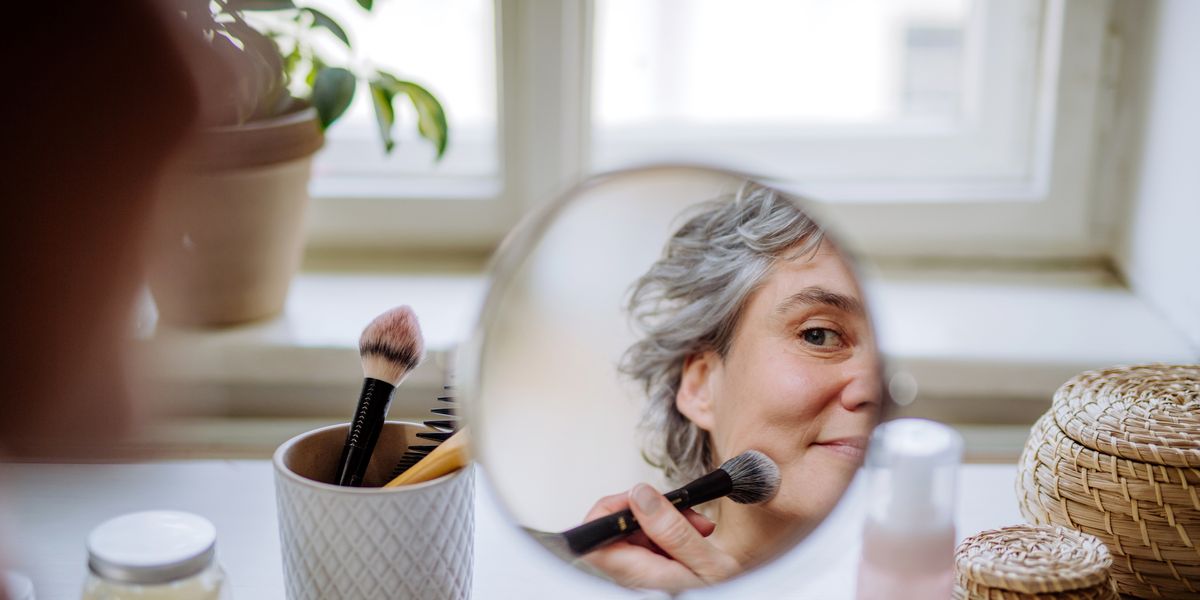
Arnold W.A. et al., Quaternary Ammonium Compounds: A Chemical Class of Emerging Concern. Environmental Science & Technology, Vol 57, Issue 20, 2023. Available at https://pubs.acs.org/doi/10.1021/acs.est.2c08244.
Bertrand, K.A. et al., Hair relaxer use and risk of uterine cancer in the Black Women’s Health Study. Environmental research, 239(Pt 1), 117228, 2023. https://doi.org/10.1016/j.envres.2023.117228.
BLK + GRN, BLK + GRN Official Website. 2025. Available at https://blkgrn.com/.
BU Slone Epidemiology Center, Black Women’s Health Study. 2025. Available at https://www.bu.edu/bwhs/.
Chan M. et al., Evaluating Neighborhood-Level Differences in Hair Product Safety by Environmental Working Group Ratings among Retailers in Boston, Massachusetts. Environmental health perspectives, 131(9), 97002, 2023. https://doi.org/10.1289/EHP10653.
Collins H.N. et al., Differences in personal care product use by race/ethnicity among women in California: implications for chemical exposures. Journal of Exposure Science & Environmental Epidemiology volume 33, pages292–300, 2023. Available at https://www.nature.com/articles/s41370-021-00404-7.
Eberle C. et al., Hair dye and chemical straightener use and breast cancer risk in a large US population of black and white women. International journal of cancer, 147(2), 383–391, 2020. https://doi.org/10.1002/ijc.32738.
ECHA, 2-(4-tert-Butylbenzyl) propionaldehyde. 2025. Available at https://echa.europa.eu/it/substance-information/-/substanceinfo/100.001.173.
ECHA, 3-iodo-2-propynyl butylcarbamate. 2025. Available at https://echa.europa.eu/it/substance-information/-/substanceinfo/100.054.188.
Edwards L. et al., Beauty Inside Out: Examining Beauty Product Use Among Diverse Women and Femme-Identifying Individuals in Northern Manhattan and South Bronx Through an Environmental Justice Framework. Environmental Justice. Vol. 16, No. 6, 2023. https://doi.org/10.1089/env.2022.0053.
EWG, Behentrimonium Chloride. 2025. Available at https://www.ewg.org/skindeep/ingredients/700657/.
EWG, Big Market for Black Cosmetics, but Less-Hazardous Choices Limited. 2016. Available at https://www.ewg.org/research/big-market-black-cosmetics-less-hazardous-choices-limited.
EWG, Cetrimonium Chloride. 2025. Available at https://www.ewg.org/skindeep/ingredients/701258/.
EWG, Cosmetics safety milestone: California Gov. Newsom approves ban on 26 more toxic chemicals linked to health harms. Environmental Working Group. 2023. Available at https://www.ewg.org/news-insights/news-release/2023/10/cosmetics-safety-milestone-california-gov-newsom-approves-ban-26.
EWG, Dmdm Hydantoin. 2025. Available at https://www.ewg.org/skindeep/ingredients/702196/.
EWG, EWG+HS. Environmental Working Group. 2025. Available at https://www.ewg.org/ewghs.
EWG, EWG’s Skin Deep cosmetics database. 2025. Available at www.ewg.org/skindeep/
EWG, Iodopropynyl Butylcarbamate. 2025. Available at https://www.ewg.org/skindeep/ingredients/703111/.
EWG, Learn how Skin Deep works. 2025. Available at
EWG, Lilial. 2025. Available at https://www.ewg.org/skindeep/ingredients/700872-LILIAL/.
EWG, Methylchloroisothiazolinone. 2025. Available at https://www.ewg.org/skindeep/ingredients/703924/.
EWG, Methylisothiazolinone. 2025. Available at https://www.ewg.org/skindeep/ingredients/703935/.
EWG, Methylparaben. 2025. Available at https://www.ewg.org/skindeep/ingredients/703937-METHYLPARABEN/.
EWG, Stearalkonium Chloride. 2025. Available at https://www.ewg.org/skindeep/ingredients/706279/.
EWG, Steer clear of formaldehyde-releasing hair-smoothing treatments. Environmental Working Group, 2021. Available at https://www.ewg.org/news-insights/news/steer-clear-formaldehyde-releasing-hair-smoothing-treatments.
EWG, Triethanolamine. 2025. Available at https://www.ewg.org/skindeep/ingredients/706639/.
Fiume. M.M. et al., Safety Assessment of Ethanolamine and Ethanolamine Salts as Used in Cosmetics. International Journal of Toxicology, Vol. 34(Supplement 2) 84S-98S, 2015. Available at https://cir-reports.cir-safety.org/view-attachment/?id=43a5d57d-8e74-ec11-8943-0022482f06a6.
Friedman A. et al., What are parabens? Environmental Working Group. 2024. Available at https://www.ewg.org/news-insights/news/2024/11/what-are-parabens.
International Agency for Research on Cancer (IARC). IARC Monographs on the Evaluation of Carcinogenic Risks to Humans, Volume 88, Formaldehyde, 2-Butoxyethanol and 1-tert-Butoxypropan-2-ol. 2006. Available at https://publications.iarc.fr/106.
James-Todd, T., Meeker, J., Huang, T. et al. Racial and ethnic variations in phthalate metabolite concentration changes across full-term pregnancies. J Expo Sci Environ Epidemiol 27, 160–166 (2017). https://doi.org/10.1038/jes.2016.2.
McDonald A. et al., The Environmental Injustice of Beauty Products: Toward Clean and Equitable Beauty. American Journal of Public Health. 2022. Available at https://pmc.ncbi.nlm.nih.gov/articles/PMC8713635/.
National Academies, Toward Environmental Justice: Research, Education, and Health Policy Needs. 1999. https://doi.org/10.17226/6034.
Ndugga N. et al., Disparities in Health and Health Care: 5 Key Questions and Answers. 2024. Available at https://www.kff.org/racial-equity-and-health-policy/issue-brief/disparities-in-health-and-health-care-5-key-question-and-answers/.
Savonius B. et al., Occupational asthma caused by ethanolamines. Allergy, 49(10), 877–881, 1994. https://doi.org/10.1111/j.1398-9995.1994.tb00791.x.
SCCS, OPINION on Methylparaben. European Union Scientific Committee on Consumer Safety, SCCS/1652/23, 2024. Available at https://health.ec.europa.eu/document/download/eb3192aa-089c-4fcf-8cac-b34892dd0b3e_en?filename=sccs_o_276_final.pdf.
SCCS, OPINION ON the safety of Butylphenyl methylpropional (p-BMHCA) in cosmetic products – Submission II -, SCCS/1591/2017, 2017. Available at https://health.ec.europa.eu/system/files/2021-08/sccs_o_213_0.pdf.
Schildroth S. et al., Personal Care Products, Socioeconomic Status, and Endocrine-Disrupting Chemical Mixtures in Black Women. Environmental Science & Technology, Volume 58, Issue 8, 3641-3653, 2024. https://doi.org/10.1021/acs.est.3c06440.
The Crown Act, Creating a Respectful and Open World for Natural Hair. 2025. Available at https://www.thecrownact.com/.
V Nguyen. et al., A comprehensive analysis of racial disparities in chemical biomarker concentrations in United States women, 1999–2014. Environment International, Volume 137, 105496, 2020. https://doi.org/10.1016/j.envint.2020.105496.
Zota A. and Shamasunder B., The Environmental Injustice of Beauty: Framing Chemical Exposures from Beauty Products as a Health Disparities Concern. Am J Obstet Gynecol, 217(4):418.e1–418.e6, 2017. Available at https://pmc.ncbi.nlm.nih.gov/articles/PMC5614862/.
link






:max_bytes(150000):strip_icc():focal(2999x0:3001x2)/peo-expert-picked-spring-fashion-trends-tout--3e83e842a1a34660b490259601fd451a.jpg)
